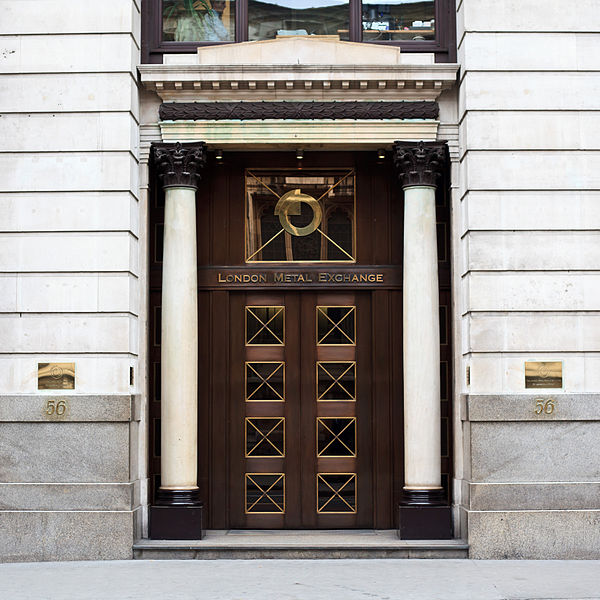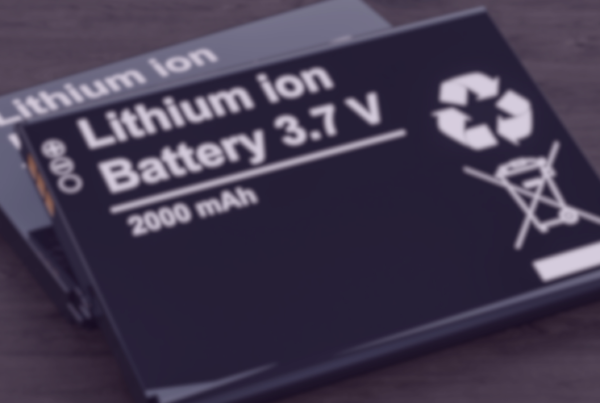ISRI’s Nonferrous Division submitted comments to the London Metal Exchange (LME) on March 19 regarding the LME’s discussion paper on the future of its markets. In January, the LME outlined several proposed changes in four main areas, including the Ring and reference prices, enhancing liquidity in the electronic market, potentially moving to a realized variation margin (RVM) methodology from the current discounted contingent variation margin (DCVM), and introducing policies and disclosures to strengthen market conduct.
Members from ISRI’s Nonferrous Division expressed concerns with several of the LME’s proposals regarding shifting to an entirely electronic market, highlighting how the changes could negatively impact those who work with and trade in scrap metal and its markets.
One major proposed change is permanently closing LME’s Ring, the last open-outcry trading floor in Europe and one of the last in the world. The Ring has been temporarily closed for nine months due to COVID-19 restrictions. The LME hopes shifting to an electronic pricing structure will benefit the market by increasing transparency and “broadening direct participation during the price discovery periods.”
ISRI members were concerned that closing the Ring and/or adding too much liquidity and speed would negatively impacts manufacturers, scrap dealers, and other market participants that deal with physical metal. By nature, physical metal markets are slow moving. “It takes time to collect, process, manufacture, or move real metal,” members say.
Ideally, entities directly related to the metals business would use these contracts to hedge but a 24-hour electronic LME trading would shift control, say ISRI members. “It could shift market control from physical market participants to commodity traders, compounding traders’ undue market influence and opportunities for market manipulation,” members note. If, for example, aluminum moved and fluctuated at the same speed as other traded products, it would make physical trading much riskier.
Members took issue with LME’s proposal to move from a discounted contingent variation margin (DCVM) methodology to a realized variation margin (RVM). The DCVM realizes forward profits until the settlement date while a RVM methodology pays profits on a trade date +1 basis. In its discussion paper, the LME noted an RVM methodology would increase trading efficiency and remove some barriers to entering the LME’s markets.
At the same time, the LME recognized that the credit provision is easier under the current DCVM structure. ISRI members noted drawbacks to the RVM system including, “potential mismatches between physical hedges and the exposure of the LME contracts, with implications for collateral and credit lines.” These changes could affect the ability of LME member dealers to extend credit lines. “The impact of the credit issue is potentially very large for ISRI members in aggregate,” say members. Joe Pickard, ISRI’s chief economist and director of commodities, agrees the biggest concern for members is the change in margin calculation. If the LME chooses not to make that change it would be a win for those members, he says.
ISRI members also highlighted concerns with LME’s proposed changes to incentivize electronic trading on the member-to-member market. To promote electronic trading, the LME would increase fees for inter-office member-to-member trades and reduce fees for electronic ones. These changes may lead to increased transaction costs and brokerage fees, say ISRI members, “which in turn will inhibit scrap recyclers’ ability to hedge their price risk exposure, particularly for small and medium-sized businesses.”
ISRI’s Nonferrous Division members did highlight several positive aspects of LME’s proposed changes. Some members are optimistic LME’s management will make sure credit is available to customers who need it by incorporating input from its members and brokers. In addition, ISRI members generally support LME changes “that will increase pricing visibility and transparency.”
Additional Resources













